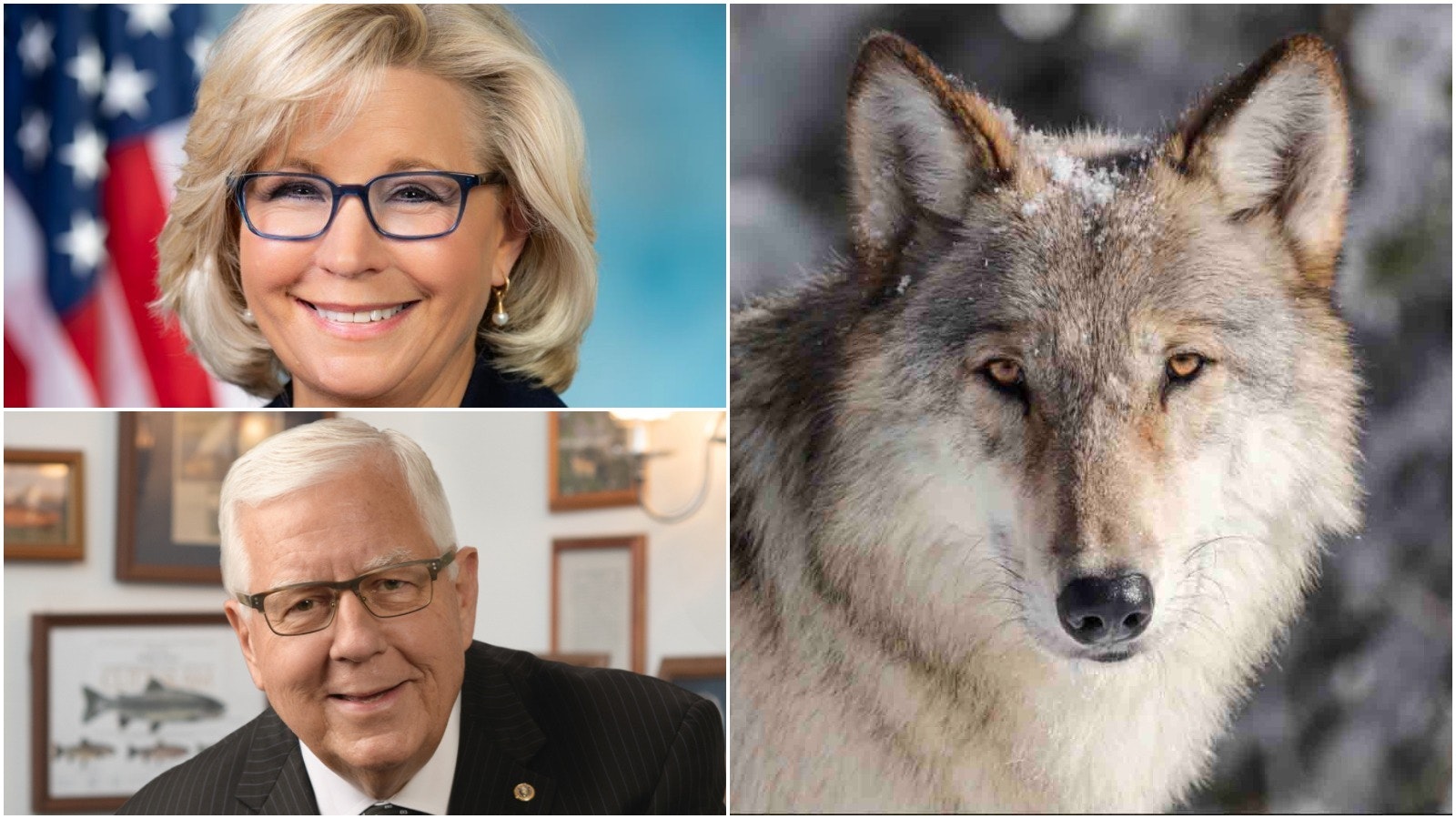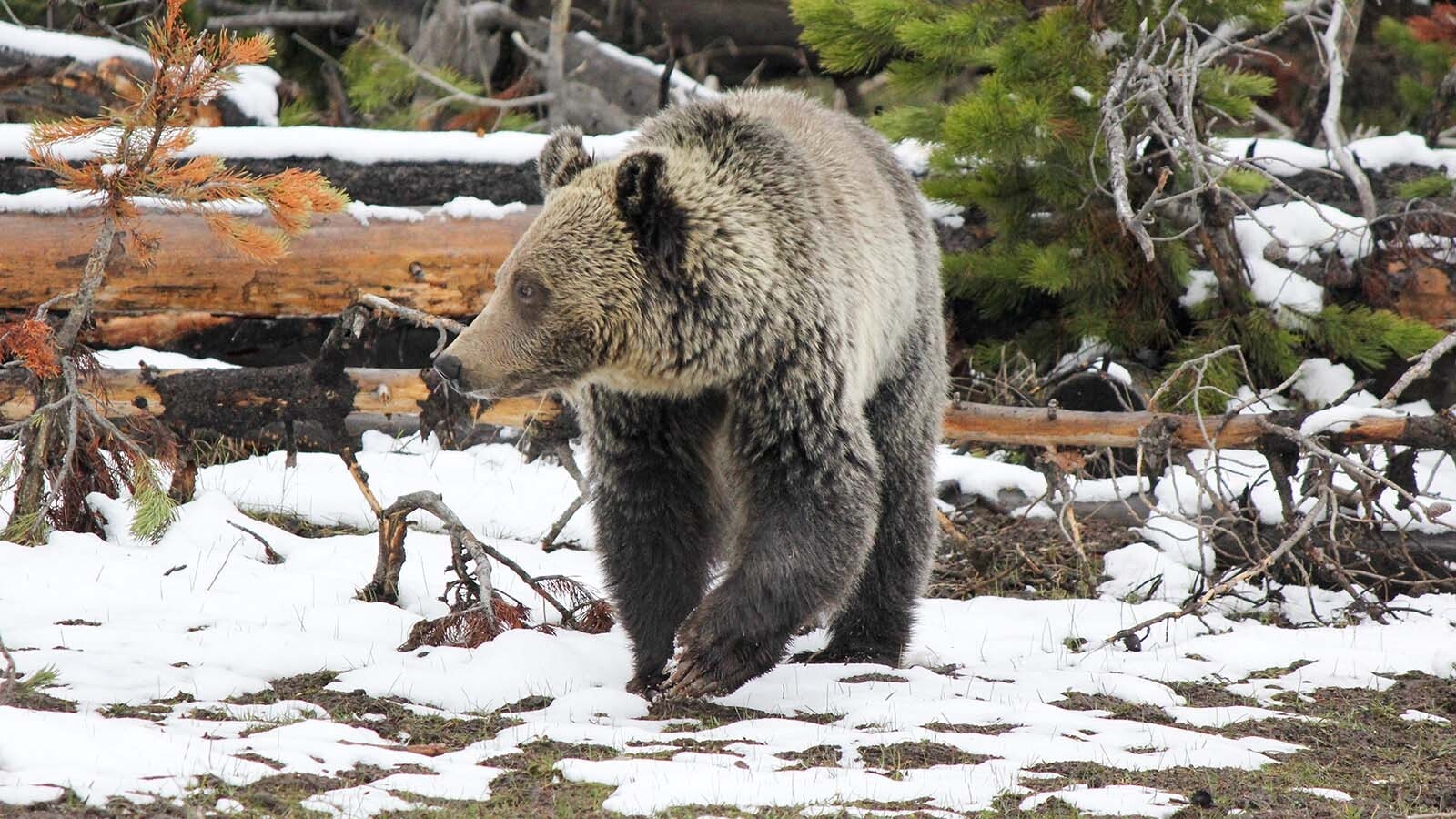Gray wolves were removed from the endangered species list by the administration of President Donald Trump on Thursday, prompting responses from officials all over the nation, including Wyoming’s senator and representative.
U.S. Rep. Liz Cheney and U.S. Sen. Mike Enzi both issued statements in support of the delisting.
“Delisting the gray wolf has been a long and bumpy road, but I think everyone should take pride in this announcement today,” Enzi said. “States like Wyoming have shown they are able to effectively manage the gray wolf.
“It is important to remember that the purpose of the Endangered Species Act is to get to this point, where a species is fully recovered,” Enzi continued. “I am hopeful that even more species in the future will be able to reach this milestone.”
Gray wolves in Wyoming were removed from the endangered species list in 2017. In other states where the wolves remained on the endangered special list, their management and protection will be taken over by state and tribal wildlife management agency professionals.
“This final rule puts the process of managing the gray wolf back where it belongs – in the capable hands of individual states,” Cheney said. “Over the past decade, our courts have been abused by radical environmental groups filing frivolous lawsuits to prevent states from managing the gray wolf population, despite repeated delisting decisions.
The U.S. Fish and Wildlife Service will monitor the species for five years to ensure its continued success. The agency made its final determination to remove the wolves from the list based on a thorough analysis of threats and how they have been alleviated, as well as efforts by states and tribes to manage the species for healthy populations.
“We are proud of our efforts in Wyoming to conserve the gray wolf’s habitat and population in consultation with federal agencies,” Sublette County Commissioner Joel Bousman said. “Populations continue to thrive in the northern Rocky Mountains because states implemented scientific measures that balance the needs of the species and our residents at the same time. Today’s decision to delist the gray wolf in the lower-48 states is further proof that population recovery goals can be met when all levels of government work together in a collaborative manner.”
The gray wolves were first listed under the Endangered Species Act more than 45 years ago.
Not all of the responses to the delisting were positive.
“Again and again the courts have rejected premature removal of wolf protections,” said Collette Adkins, carnivore conservation director at the Center for Biological Diversity. “But instead of pursuing further wolf recovery, the Fish and Wildlife Service has just adopted its broadest, most destructive delisting rule yet. The courts recognize, even if the feds don’t, that the Endangered Species Act requires real wolf recovery, including in the southern Rockies and other places with ideal wolf habitat.”
In total, the gray wolf population in the lower 48 states is more than 6,000, greatly exceeding the combined recovery goals for the Northern Rocky Mountains and Western Great Lakes populations.
The gray wolf is the latest in a long list of endangered species recoveries that includes the bald eagle, peregrine falcon, American alligator, brown pelican and 48 other species of animals and plants in U.S. states, territories and waters.
“For over ten years the State of Wyoming, together with our sister states of Idaho and Montana, has demonstrated the ability to manage an ever-increasing delisted wolf population,” Wyoming Stock Growers Association Executive Vice President Jim Magagna said. “Wyoming accomplished this with a steady hand despite periodic re-listings mandated by the courts. State management succeeds in large part because state management plans are developed in close collaboration with local, directly affected interests.
“We commend the USFWS for this nation-wide delisting that is long overdue,” Magagna continued. “Successful delisting of this high-profile species will serve to incentivize diverse partnerships that can expedite the recovery of many other listed or imperiled species,”





